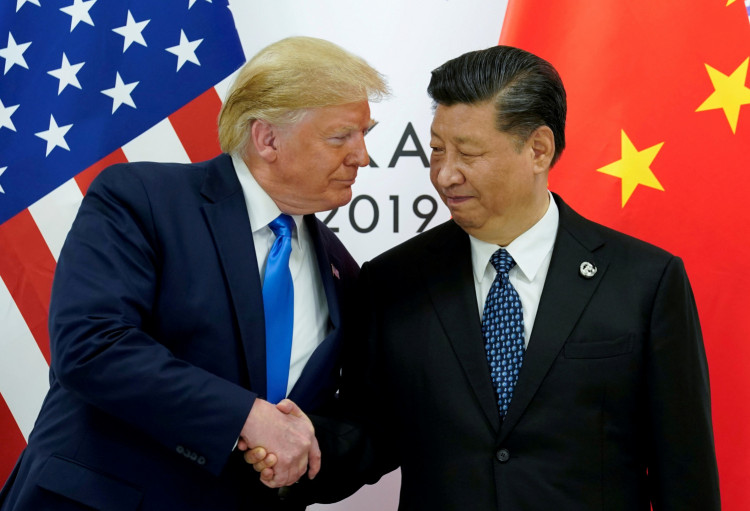Asian stocks mostly saw gains on Thursday's trading following the emergence of optimistic news on the highly-anticipated China-U.S. trade deal that could potentially lift tariffs on each other's goods.
According to CNBC, mainland Chinese stocks advanced, with the Shenzhen composite adding 1.147 percent, the Shanghai composite advancing by 0.74 percent, and the Hang Seng index progressing by 0.56 percent.
Over in Japan, the Nikkei 225 also edged up 0.71 percent, the Topix index gained 0.48 percent, and shares of robot leader Fanuc hiked by 1.98 percent. While South Korea's Kospi slumped by 0.39 percent, Australia's S&P/ASX 200 advanced 1.16 percent.
The advancement of most Asian stocks came after a Bloomberg report said on Wednesday that China and the United States were now much closer to a potential trade deal. The report noted that people with knowledge of the matter said the economic powers were now closer to the number of tariffs that will be lifted as part of "phase one" of the deal.
The Bloomberg reveal also came short of a day after U.S. President Donald Trump suggested that he may push the trade agreement with Beijing after the 2020 election. His comments resulted in global shares sell-off.
While Trump's comments have been referred to as "confusing" at some point, some analysts believe he is just waiting for the right time to drop the bomb about the true status of the China-U.S. trade deal.
Head of the Asia-Pacific asset allocation unit at UBS Global Wealth Management, Adrian Zuercher, noted that there is "a relatively good chance that there's a sort of first phase deal."
Zuercher added that there is a possibility the tariffs set to take effect on December 15 will be lifted as part of the agreement. This statement echoed previous sentiments suggesting the two countries are waiting for better momentum to sound off more optimistic trade developments.
Meanwhile, Chinese ambassador Cui Tiankai said during a dinner hosted by the U.S.-China Business Council on Wednesday evening that the two economic giants should be wary of forces trying to take advantage of trade tensions.
Cui called on both sides to continue working on a resolution to their differences. He also called for added efforts between Chinese and American firms to continue expanding business ties, Reuters reported.
Finally, Cui said both sides should be more careful of listening to "fake news" about China. He said it is still possible to fix trade disputes despite some outside work on thwarting the countries efforts to come down to a reasonable agreement that will benefit both parties.
China and the U.S. have yet to sign "phase one" of the trade deal.





